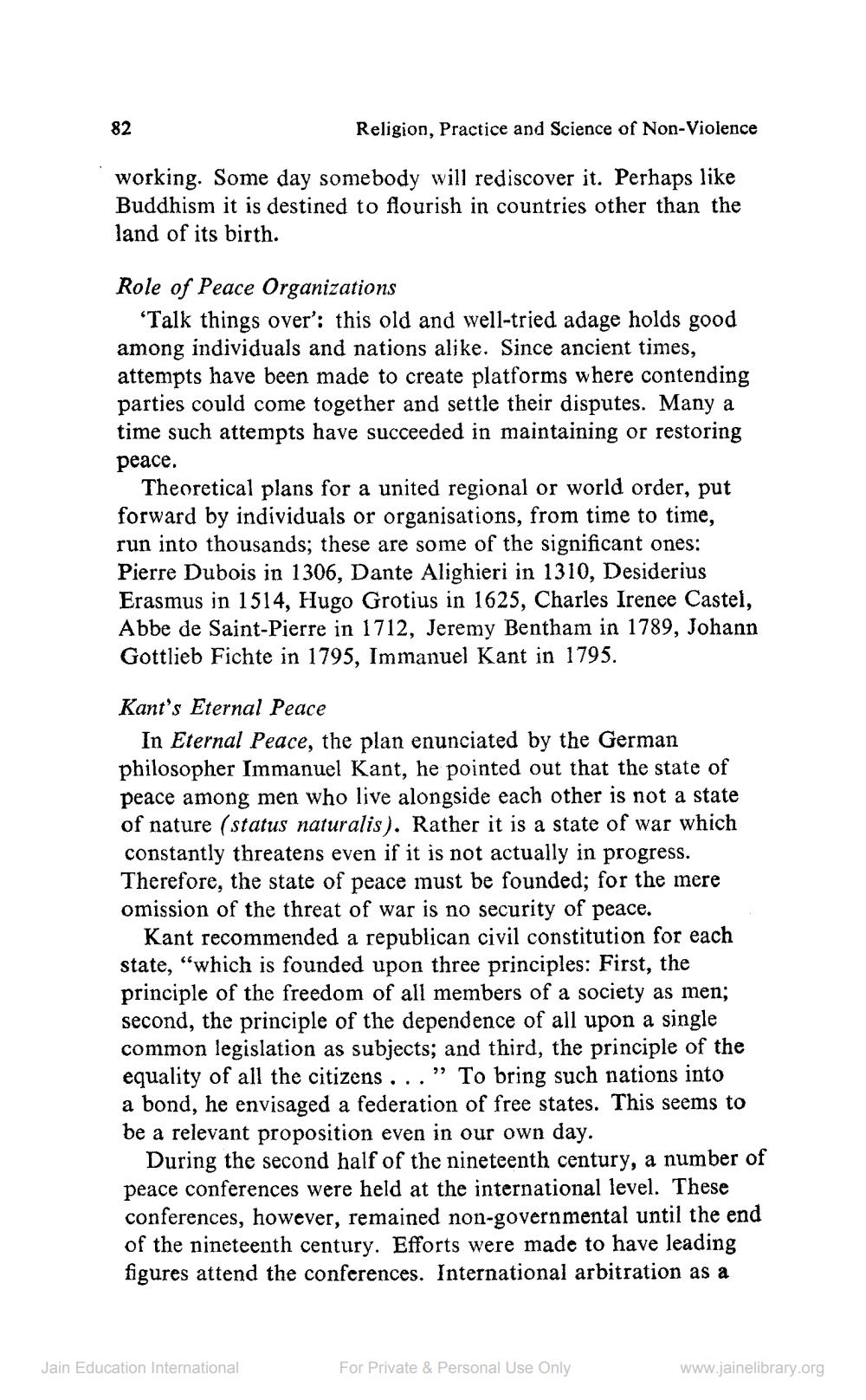________________
Religion, Practice and Science of Non-Violence
working. Some day somebody will rediscover it. Perhaps like Buddhism it is destined to flourish in countries other than the land of its birth.
Role of Peace Organizations
"Talk things over': this old and well-tried adage holds good among individuals and nations alike. Since ancient times, attempts have been made to create platforms where contending parties could come together and settle their disputes. Many a time such attempts have succeeded in maintaining or restoring peace.
Theoretical plans for a united regional or world order, put forward by individuals or organisations, from time to time, run into thousands; these are some of the significant ones: Pierre Dubois in 1306, Dante Alighieri in 1310, Desiderius Erasmus in 1514, Hugo Grotius in 1625, Charles Irenee Castel, Abbe de Saint-Pierre in 1712, Jeremy Bentham in 1789, Johann Gottlieb Fichte in 1795, Immanuel Kant in 1795.
Kant's Eternal Peace
In Eternal Peace, the plan enunciated by the German philosopher Immanuel Kant, he pointed out that the state of peace among men who live alongside each other is not a state of nature (status naturalis). Rather it is a state of war which constantly threatens even if it is not actually in progress. Therefore, the state of peace must be founded; for the mere omission of the threat of war is no security of peace.
Kant recommended a republican civil constitution for each state, “which is founded upon three principles: First, the principle of the freedom of all members of a society as men; second, the principle of the dependence of all upon a single common legislation as subjects; and third, the principle of the equality of all the citizens ..." To bring such nations into a bond, he envisaged a federation of free states. This seems to be a relevant proposition even in our own day.
During the second half of the nineteenth century, a number of peace conferences were held at the international level. These conferences, however, remained non-governmental until the end of the nineteenth century. Efforts were made to have leading figures attend the conferences. International arbitration as a
Jain Education International
For Private & Personal Use Only
www.jainelibrary.org




